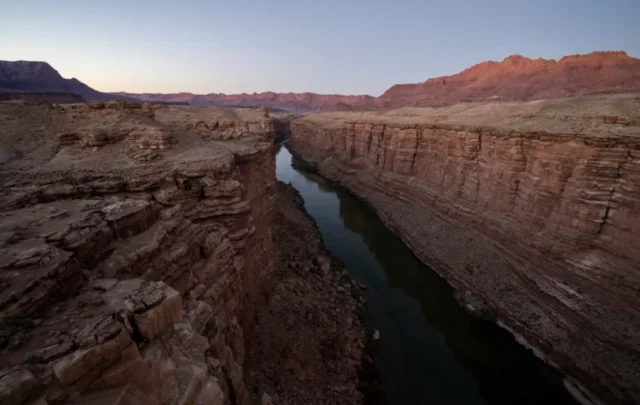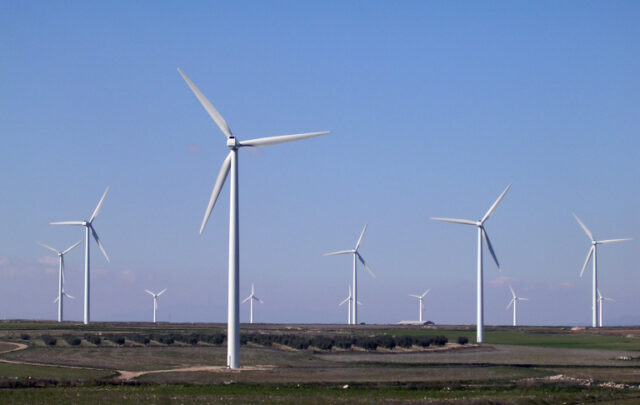Click on the headline (link) for the full text.
Many more articles are available through the Energy Bulletin homepage.
US gas demand should fall for good after ’06 peak
Associated Press
… After seven decades of mostly uninterrupted growth, U.S. gasoline demand is at the start of a long-term decline. By 2030, Americans will burn at least 20 percent less gasoline than today, experts say, even as millions of more cars clog the roads.
… “A combination of demographic change and policy change means the heady days of gasoline growing in the U.S. are over,” says Daniel Yergin, chairman of IHS Cambridge Energy Research Associates and author of a Pulitzer Prize-winning history of the oil industry.
(20 December 2010)
Reader MB writes: “Yergin spins Peak Demand!”
Interactive: The Global Oil Diet
Seung Won Hur and Jon Bruner, Forbes
Interactive Feature
The United States is the third-largest producer of oil in the world, but it is by far the world’s largest consumer of oil, using about twice as much oil as it produces. The highly-localized distribution of oil around the world and differences in regulatory approaches to drilling mean that among large economies there is enormous variation in the ratio of oil produced to oil consumed: Japan, Germany and South Korea must import practically all the oil that they use, while Canada and Russia are heavy users as well as net exporters of oil.
… Produced in association with the Parsons Institute for Information Mapping (PIIM). Seung Won Hur, who conceived and designed this graphic, is a student at the New School for Social Research. Jon Bruner, who programmed the graphic, is an editor at Forbes. Source: Energy Information Administration.
(20 December 2010)
A compelling graphic. -BA
Subsidy Cuts in Iran
Layla Tadjpour, ZNet
On Sunday, December 19, the government of president Ahmadinejhad of Iran officially launched the subsidy removal program.
Riot police guarded gas stations around Tehran as the fuel prices jumped sharply.
A night earlier, president Ahmadinejad had appeared on the Iranian state-run television and had announced that the subsidy for water, bread electricity and fuel would gradually be removed.
Also, as of Sunday people were allowed to withdraw the money that has been deposited in their individual bank accounts for the past couple of months (this money is supposedly the cash back in lieu of the removal of subsidies).
In 2005, Ahmadinejad came to power in part due to the support of sections of the Iranian society that had been hit hard by the neo-liberal policies of his predecessors, former presidents Rafsanjani and Khatami.
With the oil price peaked to $140 in his first years in office, he had a unique opportunity to improve the living standard of the lower class, as he himself promised to “bring the oil revenue to the people’s table”.
But his government precipitated the privatization process that had been going on since the early 90’s and handed over major public enterprises to the small sectors of the new ruling class, who are mostly associated with the Revolutionary Guards.
His monetary distributions seems to have included mostly the sectors of the society that were anticipated to vote for and support his government.
By taking the recent measure, the government plans to spend the money it saves from not paying energy and basic goods subsidies on further enriching the political and military elites.
(21 December 2010)
Iran Stops Fuel Delivery, Afghanistan Says, and Prices Are Rising
Michael Kamber and Taimoor Shah, New York Times
KABUL, Afghanistan — Government officials expressed alarm on Wednesday about what they described as Iran’s unexplained ban on fuel exports to Afghanistan, asserting that at least 1,400 loaded tankers were parked on Iran’s side of three border crossings.
Abdul Karim Barahwe, the governor of Nimroz Province in western Afghanistan, said the Iranian authorities had started halting tankers bound for Afghanistan about 10 days ago. The effect is driving up fuel prices just as winter is setting in.
(22 December 2010)





